Q&A with Sarah Silberstein Swartz, Author of "Heroines, Rescuers, Rabbis, Spies: Unsung Women of the Holocaust"
Sarah Silberstein Swartz is a writer, translator, and award-winning book editor specializing in Jewish Women’s Studies and Holocaust History, as well as Jewish literature for young adults, general readers, and scholars. She was editor-in-chief of Jewish Women in America: An Historical Encyclopedia (1997) and has written and edited several profiles for JWA’s Shalvi/Hyman Encyclopedia of Jewish Women. A dual citizen of the United States and Canada, Sarah was born in post-war Berlin, Germany, to Jewish-Polish Holocaust survivors, immigrated to the US as a child, and lived in Toronto as an adult for over 30 years. She is currently a Research Associate at the Hadassah-Brandeis Institute at Brandeis University, where she first gave a talk about “Unsung Heroines of the Holocaust.” JWA recently sat down with Sarah to discuss her new book, Heroines, Rescuers, Rabbis, Spies: Unsung Women of the Holocaust.
JWA: Sarah, very excited to be speaking with you today. What inspired you to write your book?
Sarah: Well, I am a long-time editor of other people's work and most of the books that I have worked on are either Jewish history pertaining to the Holocaust [or] feminist books.
I felt it was time for me to write my own book. I'm in the midst of working on my memoir and I thought it would be appropriate for me to tackle a shorter work and deal with women's lives who I feel have been overlooked, who were really heroines of the Holocaust.
I was interested in ordinary young women who rose to their highest capacity during a very difficult time. I’m a daughter of Holocaust survivors—Polish Jews—who were hidden and ended up in Nazi concentration camps, so the story of the Holocaust is very meaningful to me, and I think it's a very important time right now to bring up these stories. We're facing bigotry and hate in our world today, and I feel that there are a lot of lessons to be learned from the Holocaust.
JWA: How did you end up selecting these women and what did the selection process look like for you?
Sarah: I wanted a diverse selection of European Jewish experiences. I also wanted to include women who were not of Jewish origin.
The way that I [conceived of] the book initially was to [make] it geographically diverse with a variety of women’s roles and experiences and tell their life stories from beginning to end, which means that I've also included details about their young lives. Most of them were young women during the Holocaust, hardly out of their teens. In fact, they landed in situations that they never thought that they would be in.
The selection process was really interesting. In doing my research I found many women who I considered heroines, but I ended up zeroing in mostly on women that had some personal connection to me, [like] Rabbi Regina Jonas from Berlin, who was the very first woman rabbi in 1935.
She was rediscovered in the late 1990s. There's actually a biography of her, but most American Jewish young women don't know that she was ordained before the American women rabbis in the 1970s and onward. So, I felt it was really important to include her.
The book starts with her. She's the only heroine in my book who did not survive. She was killed in Auschwitz toward the end of the war. All the other women that I chose are survivors. And it's been very important for me to choose women who had post-Holocaust lives, because they initiated the future.
I end my book with my mother and my aunt. They were very much the inspiration for my book. I didn't know that much about their Holocaust experiences. They both died when I was in my twenties, so I had to research as much as I could about their stories.
Two women [who] were not Jewish were rescuers. Irena Gut Updyke was a friend of my aunt whom she accidentally met in Coney Island. They were both Polish speakers and became good friends. As a young child I knew and loved this woman, because she would come to visit us on our farm and we would make daisy crowns together. Many years later, I found her book, which told of her life of saving sixteen Jews in Poland. So that was also a personal connection.
Yukiko Kikuchi Sugihara was the wife of a Japanese consul in Kovno, Lithuania and together they wrote visas and saved about 6,000 Jews. And that story is told from a feminist perspective because she persuaded her husband to write these visas when he was inclined not to, because his government didn't support it. She's never gotten the credit for this. He's the one whom Yad Vashem has honored.
JWA: Given our current socio-political climate, why do you think it's important to continue to tell these stories?
Sarah: I think it's very important to understand and remember the Holocaust. We live in a world where there is too much racism, anti-refugee sentiment, antisemitism, and of course extreme nationalism and genocide.
For me there [are] echoes of the Holocaust in the present, which is very scary. I want to bring out the voices, the lives, of these women because, as the title says, these are unsung heroines. They aren't generally known. They [are] ordinary young women who rose to the occasion during very extraordinary and horrific times. And though we haven't reached that level here in North America, there are definitely echoes of it.
It was also interesting for me as I researched these women, though I certainly consider myself a feminist, I hadn't necessarily meant for this book to be a feminist statement. What I found with almost every individual woman was that each faced challenges because they were women and were overlooked because they were women.
JWA: What do you hope that readers take away from these stories?
Sarah: Well, I hope that they're inspired by these stories. Today there are mixed reviews about teaching the Holocaust—you know, Holocaust references are dropped inappropriately all over the place—but it's really important to come to an understanding of what the Holocaust can teach us.
I hope that my book touches readers and makes them look more deeply into what happened then and consider what is happening now. The book includes a timeline and a glossary and a map. I hope that this makes it accessible. One of the things that makes my book different from a number of other books that have come out more recently about women heroines and the Holocaust is that in a very short, concise space, I've told their stories from their pre-war lives, which I think is really important as well. They were normal women living normal lives until the Nazis came in. So I cover their beginnings, their horrific Holocaust experiences, and also, very importantly, what they did after the Holocaust.

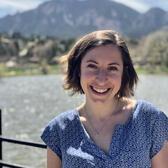
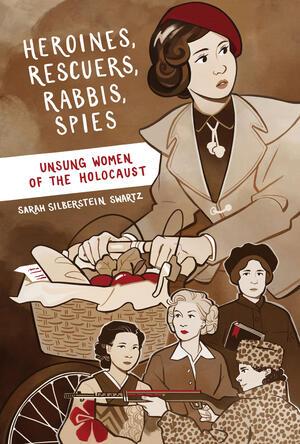
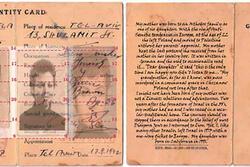
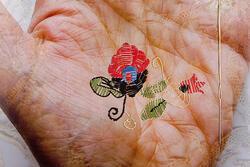
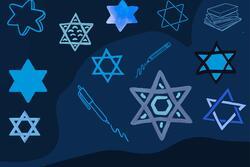


I bought this book for my granddaughters. But I wanted to read it before passing it on to them. Once I opened the pages, I couldn't stop reading. I felt a longing to know these personal stories of heroism, to be inspired by women who valued being of service to others beyond thinking of themselves. It's an important book, especially in today's difficult world.
I very much enjoyed reading Sarah Swartz's comments on who and how she chose her subjects for this book.
I've read Heroines, Rescuers, Rabbis, Spies and found the story-telling compelling. This book is a valuable teaching tool for both the Jewish community and the wider world. I would love to see it on the curriculum for public schools across the U.S. We need these stories.